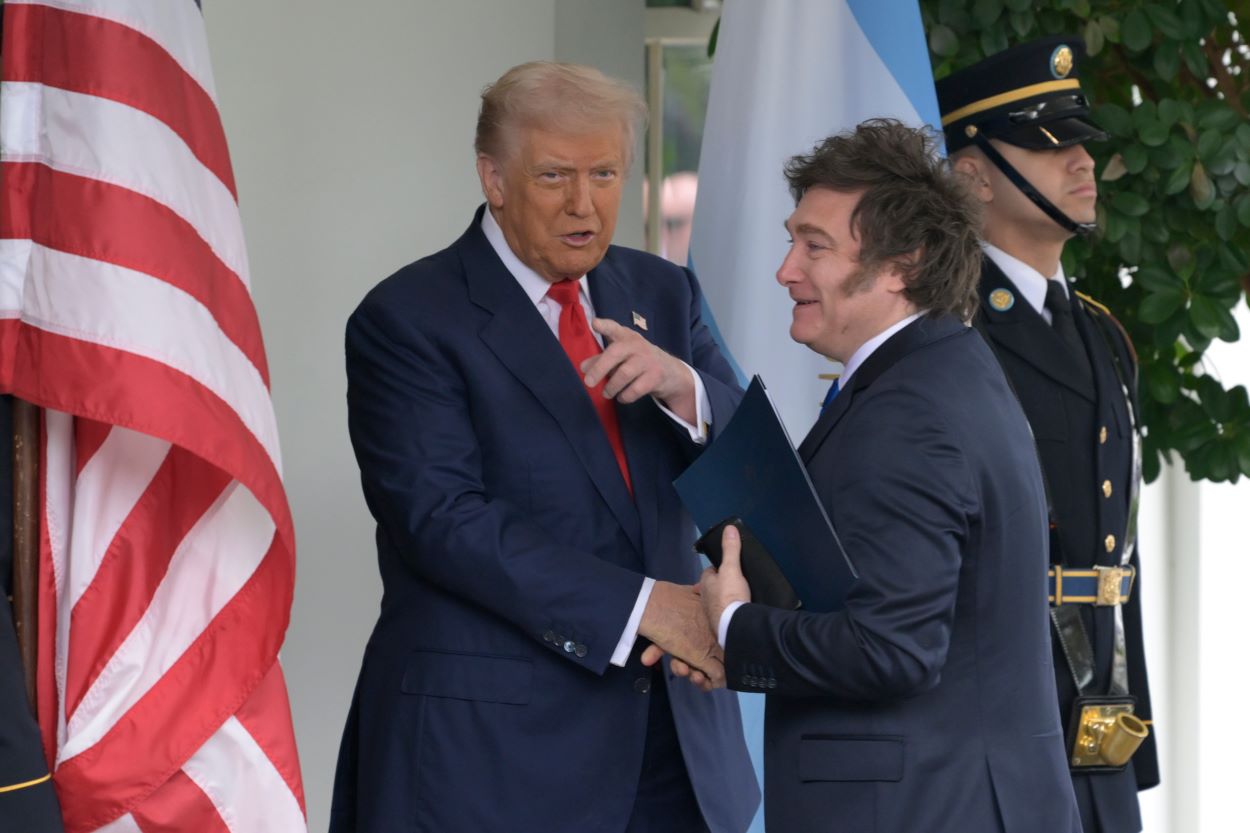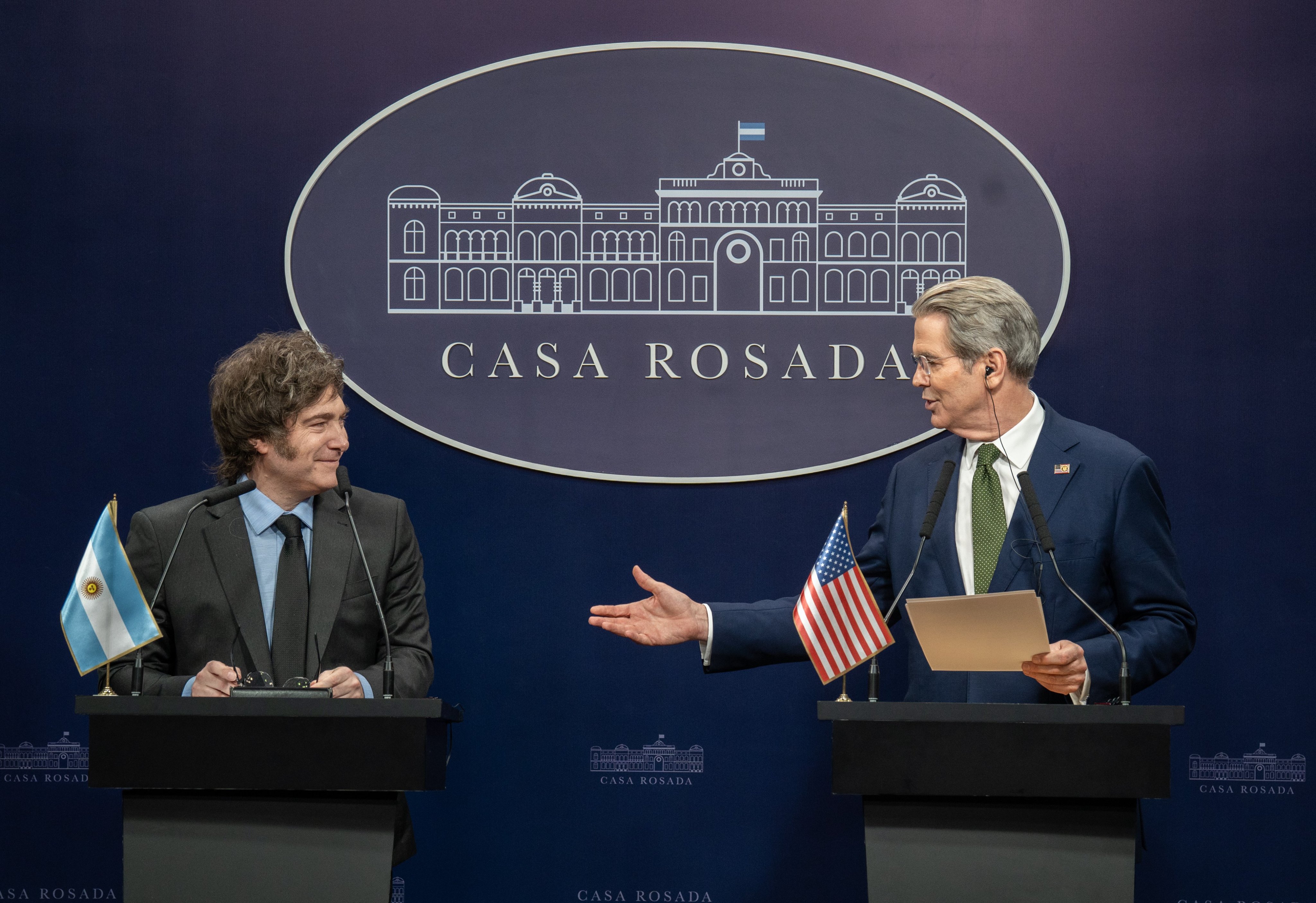Interview: Mexican Senator Gabriela Cuevas on Gender and Foreign Relations
Interview: Mexican Senator Gabriela Cuevas on Gender and Foreign Relations
The head of the Mexican Senate’s Foreign Relations Committee spoke to AS/COA about her legislative priorities and her work to promote women's empowerment.
 “It is important to learn about and work with the entire system of Mexican representation outside our country, but it is also very important to learn about new visions of diplomacy.”
“It is important to learn about and work with the entire system of Mexican representation outside our country, but it is also very important to learn about new visions of diplomacy.”
Senator Gabriela Cuevas, president of the Mexican Senate’s International Relations Committee, spoke to AS/COA’s Andrés Sada about issues she plans to address and has worked on during her career, particularly gender and foreign relations. “Mexico cannot afford the luxury of being divided abroad,” said the senator. Cuevas became a federal congresswoman at 22 years old, and at 27 became borough leader of Miguel Hidalgo, a section of Mexico City. The senator spoke about her reaction to the Pact for Mexico, an agreement between Mexico’s three main political parties that consists of 95 proposals—including energy, finance, and telecommunications accords.
AS/COA: Can you tell us about your trajectory regarding gender issues? Which gender-based bills do you plan on introducing?
Senator Gabriela Cuevas: I have worked on gender issues for a long time, not just since I became part of the Senate but also as member of the lower house of Congress and as a borough leader, which is similar to a mayor in the Federal District. I believe the most important achievements were when I governed Miguel Hidalgo and we expanded the daycare center network by 40 percent. We changed the entire educational program including nutrition, since it’s a critical age for child development. This also has to do with giving opportunities to women in order for them to be able to work. When women leave the home to work, they become much more self-sufficient and independent in making decisions. In the Federal District, one out of every three homes is headed by a woman. So these policies for daycare centers were very important.
There is another important issue which I have been working on in the Senate and for which I’m going to introduce a bill: maternity and paternity leave. It’s not just for when a baby is born but also when a couple adopts a child. In Mexico, our legislation does not cover maternity or paternity leave, especially in the public sector.
I’m going to introduce this bill and we hope to obtain a three-month leave for women that can also be used before the birth, and a 15-day paternity leave for men after the baby is born or the adopted child is taken home. I have also been working on issues regarding access to social security for single mothers, which is a very important issue. I have focused my work on gender issues to give women more options to be part of the workforce and to have an income.
AS/COA: Can you tell us about your participation in the annual meeting of ambassadors and consuls?
Cuevas: This is the first time that the Senate has been so active in this meeting. This was very important for me because traditionally the Senate just watches executive decisions from afar. On this occasion we requested the Senate have a more active role and that it accompany the decisions of the executive branch. Why? Because we have to review the treaties and agreements that our country signs, and we also have to ratify ambassador and consular appointments. So we don’t expect to just ratify decisions but also to be part of the decision-making process.
It was very important to participate in that meeting. First, due to the quality of the information provided in those meetings, it is important to learn about and work with the entire system of Mexican representation outside our country, but it is also very important to learn about new visions of diplomacy. For example, there are aspects of parliamentary diplomacy and the diplomacy on behalf of districts and municipalities.
So I thought it would be important to have an articulated system. Mexico cannot afford the luxury of being divided abroad, and to have a common proposal, we must discuss it in these types of meetings, agreements, and events.
AS/COA: You outlined five basic foreign policy issues in a letter to the governing board of the Pact for Mexico [an agreement outlining goals for future reforms signed by Mexico’s three main political parties in December 2012]. Can you explain why you selected those issues? And how would you like to see them incorporated in the Pact?
Cuevas: I wouldn’t like to see them incorporated as I sent them. I found it interesting that although this pact is such an important instrument to reach agreements, foreign policy was practically left off the agenda. So the most important issue that I will be focusing on is immigrant children who travel alone, because this is something that involves human rights and because it is an issue involving children, who lack a voice. This is an issue which can and must be solved quickly.
I believe that is the most important issue for me. It must be discussed from a legislative point of view, from a public policy point of view and, no doubt, in the area of diplomacy. The list could be longer but this is one of the most important aspects. I insist on this point about children who travel on their own, because this affects the life of thousands of children every year.








